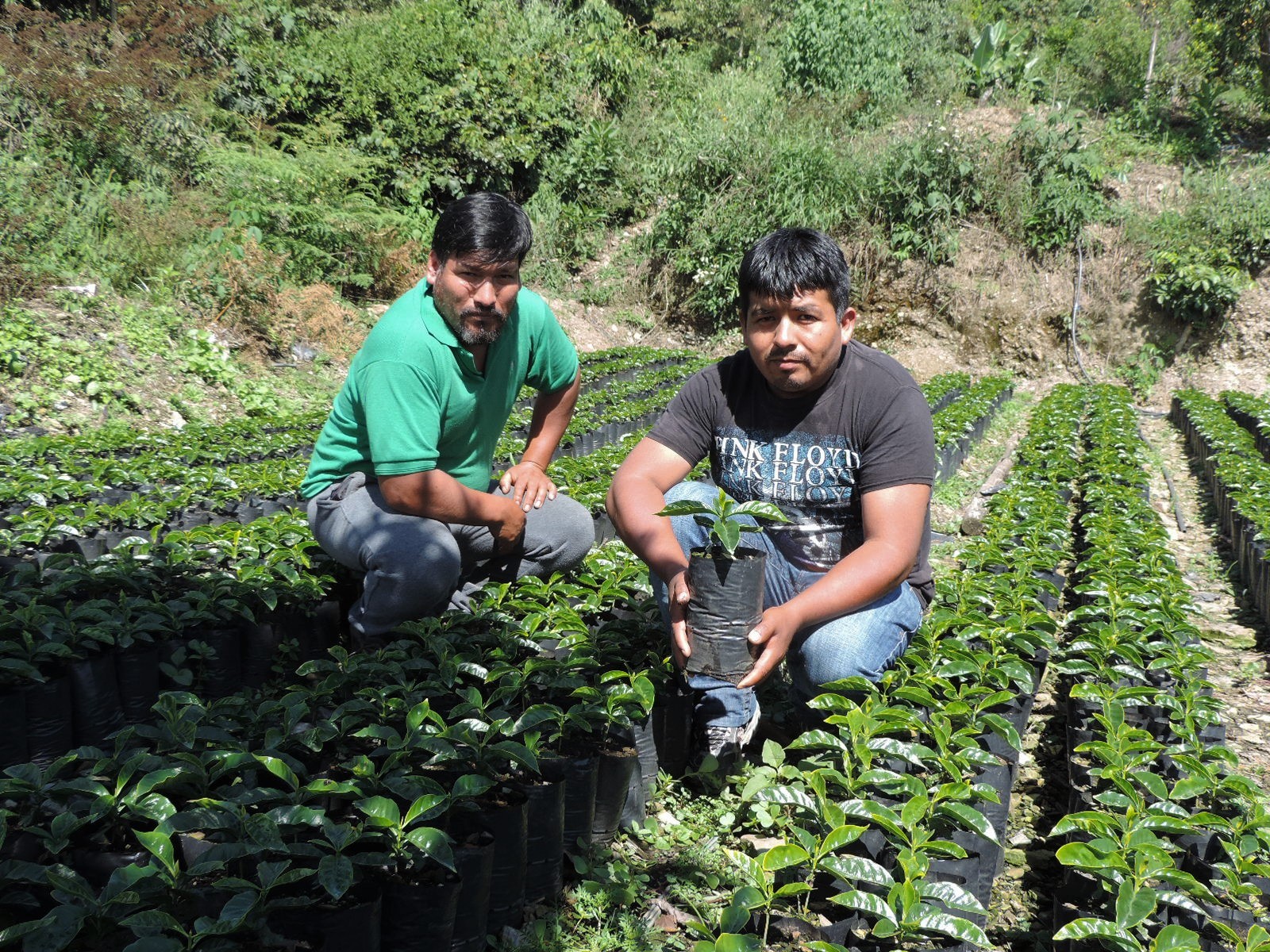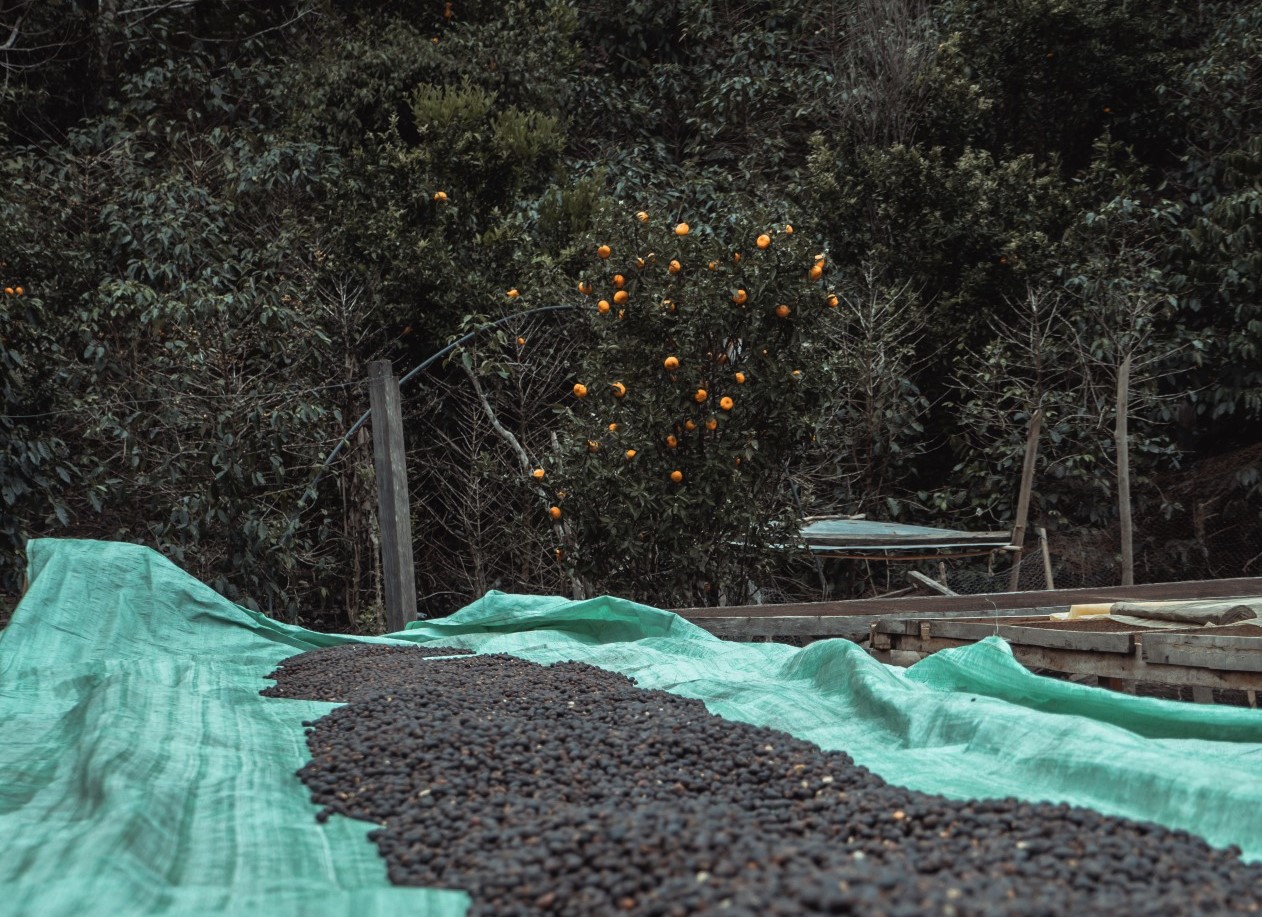Crown Jewel Bolivia Irupana Jeivert Pañuni Raised Bed Natural – 1 Lb
Bags 0
Warehouses Oakland
Please Note this is a 1 LB bag of unroasted, green coffee.
Out of stock
About this coffee
Grower
Jeivert Pañuni
Altitude
1800 masl
Variety
Caturra, Catuai
Soil
Clay loam
Region
Irupana municipality, La Paz Department, Bolivia
Process
"Natural" dried in the fruit on raised beds in the sun
Harvest
June - October 2020
Certification
Conventional
Coffee Background
Bolivia is South America's only landlocked coffee producing country and is the smallest exporter of coffee on the continent. The quality of that coffee, however, is hardly lacking in diversity or beauty. Bolivia’s terrain and geography is gifted for arabica production, particularly throughout its greater Yungas region (Yungas is Aymara for "warm lands"), whose mountain ranges connect the low and humid Amazonian basin to the dry Andean altiplano above.
The most productive municipality in the Yungas is by far Caranaví, where 85-90% of Bolivia's specialty coffee has continued to thrive over the decades. But coffee is produced throughout a very wide area of the greater Yungas territory in Bolivia, all of which shares the same steep, cloudy, rugged, and remote landscape as Caranaví. Coffee farms in this high and tropical climate tend to be well-managed but small, challenged by isolation and lacking in long-term industry support. Bolivian growers still often don’t have processing equipment or transportation of their own, a massive hurdle in such territory.
Cooperativa Agrícola Cafetalera San Juan (San Juan) was formed in 1974 with 40 farmer members across the greater Yungas region, united in the goal of supporting small family farms and organic, chemical-free methods. The cooperative started out strong; by the mid-2000s Bolivia was hosting annual Cup of Excellence competitions and there was a high level of international development interest in the Yungas coffee sector. However, productivity declined tremendously from 2006-2017 among cooperative members due to aging trees and falling investment. That year, Felix Chambi Garcia joined the organization, bringing with him over 16 years of specialty experience as a cupper and member of various other Bolivian cooperatives. Since then, the coop’s total production, overall quality, and diversity of coffees has all increased significantly. Felix sees himself as part of the younger, renewed generation of coffee lovers in Bolivia—including baristas and roasters—who are fortunate to be in a producing country with such high potential. This generation certainly believes there is a lot of ground to be covered.
San Juan relies on individual farmers to process their own coffee. Felix has made quality control central to the coop’s operations, and his lab in Alto Cochabamba serves as the control point for all lot building and exportation. The selection is rigorous: parchment lots that don’t make the minimum requirement are sold domestically, rather than marketed abroad. The careful quality control also makes it possible for individual farmers like Jeivert Pañuni, to get feedback on techniques employed at their farm, in order to help them develop individually.
This coffee is a naturally processed microlot from Jeivert, a single farmer member of San Juan. Jeivert’s farm is south of Caranaví in the Irupana municipality. It is also hundreds of meters higher in elevation. Being so high, cherry maturation is slowed greatly and his coffee trees tend to require an extra month or two of picking compared to farmers further down. This, despite having less overall shade on his farm than is typical for the region—in fact, none at all—instead letting the high and cloudy climate temper the coffee’s exposure to the elements. Harvesting for naturals is a careful ripeness selection and hand picking, and drying on raised beds with constant scrutiny for imperfections among the cherry as it dries. The final profile is wonderfully rich and expressive of tropical fruit and sweetened condensed milk.
Biodiversity, soil health, elevation, and progressive leadership in San Juan all work undeniably in favor of small farmers seeking sustainable livelihoods with coffee. Yet, facing each and every Bolivian coffee, especially the best ones, is one of the most strenuous overland transits in the coffee world, passing elevations of 4000 meters over the top of the Andes and west to the port of Arica on Chile’s coast. The country’s low production, select few producer groups in the specialty game, and formidable logistical challenges, means each successful arrival is something to be cherished. Particularly for microlots as unique as this one.




